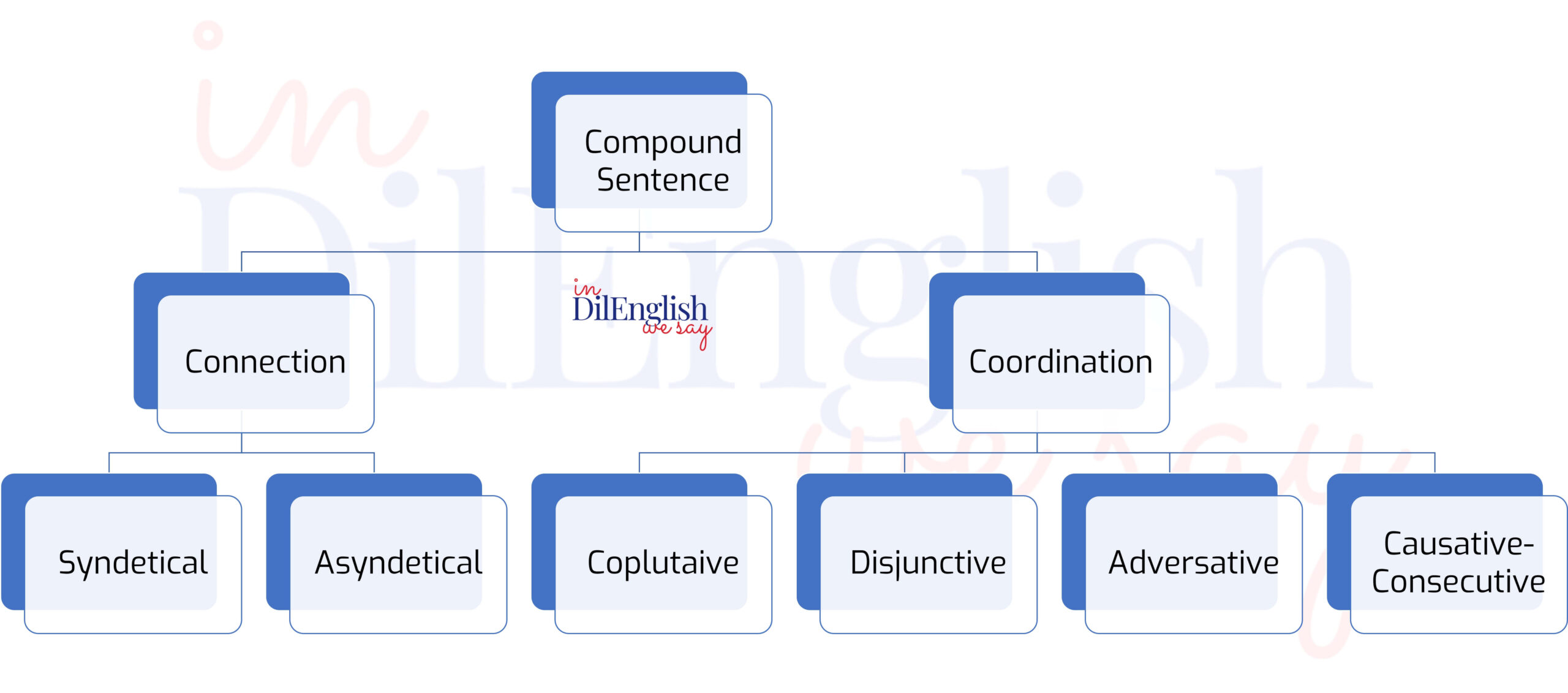Compound sentences are a fundamental aspect of the English language, allowing us to express complex thoughts and ideas in a clear and concise manner. By combining two or more independent clauses, compound sentences provide a powerful tool for connecting and contrasting different ideas. In this article, we will delve deeper into the structure and usage of compound sentences, examining the different ways they can be formed and used in written and spoken communication. Whether you are a student, a professional, or simply someone who wants to improve their English language skills, this article will provide you with a comprehensive understanding of compound sentences and how to use them effectively.

Connection
#1. A compound sentence is a sentence which consists of two or more clauses coordinated with each other. A clause is part of a sentence which has a subject and a predicate of its own.
In a compound sentence the clauses may be connected:
| Syndetically | By means of coordinating conjunctions (and, or, else, but, etc.) or conjunctive adverbs (otherwise, however, nevertheless, yet, still, therefore, etc.).
The darkness was thinning, but the street was still dimly lighted. (Lindsay) He knew there were excuses for his father, yet he felt sick at heart. (Cronln) |
| Asyndetically | Without a conjunction or conjunctive adverb.
The rain fell softly, the house was quiet. (Collins) The month was July, the morning fine, the glass-door stood ajar, through it played a fresh breeze… (Ch. Bronte) He uttered no other words of greeting; there was too strong a rush of mutual consciousness. (Eliot) |
Coordination
We can distinguish the following types of coordination:
| Copulative coordination | expressed by the conjunctions and, nor, neither … nor, not only … but (also). With the help of these conjunctions the statement expressed in one clause is simply added to that expressed in another.
|
| Disjunctive coordination | expressed by the conjunctions or, else, or else, either… or, and the conjunctive adverb otherwise. By these a choice is offered between the statements expressed in two clauses.
|
| Adversative coordination | Expressed by the conjunctions but, while [1], whereas and the conjunctive adverbs nevertheless, still, yet. These are conjunctions and adverbs connecting two clauses contrasting in meaning.
|
| Causative-consecutive coordination | expressed by the conjunctions for, so and the conjunctive adverbs therefore, accordingly, consequently, hence.
For introduces coordinate clauses explaining the preceding statement. Therefore, so, consequently, hence, accordingly introduce coordinate clauses denoting cause, consequence and result. [2]
|
NOTE:There are cases when the conjunction for expresses relations approaching those of subordination, i. e. when it introduces a clause showing the reason of the action expressed in the preceding clause. In these cases, the conjunction for is very close in meaning to the conjunction because.
She (Lillian) was not helpless, for she had money of her own. (Dreiser)
But even here for is not a subordinating conjunction, as the connection between the clause it introduces and the preceding clause is loose: a certain fact is stated and then, as it were on second thought, another, statement with a causal meaning is added.
- The conjunction while is not always coordinating. It may be a subordinating conjunction introducing adverbial clauses of time.
- Cause, consequence and result may also be expressed by subordinate clauses, introduced by subordinating conjunctions.
